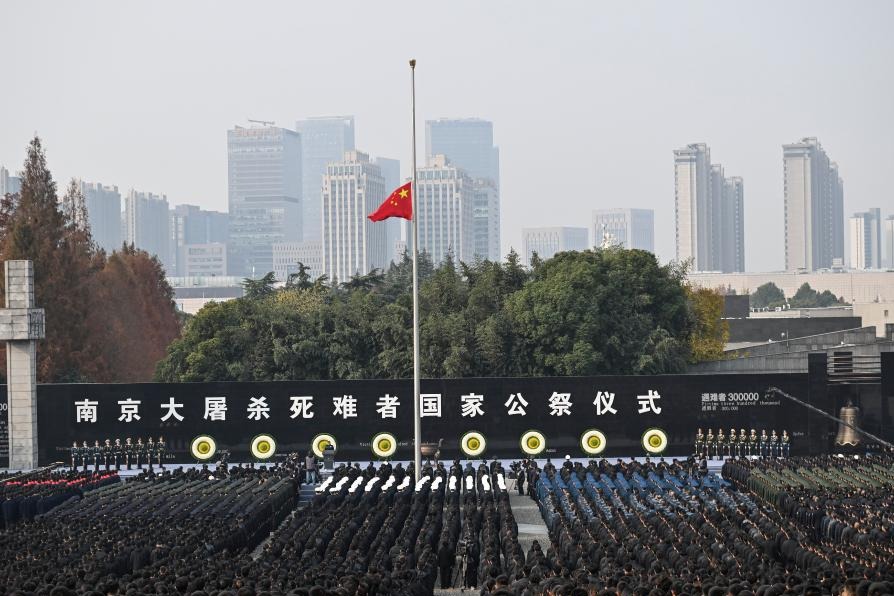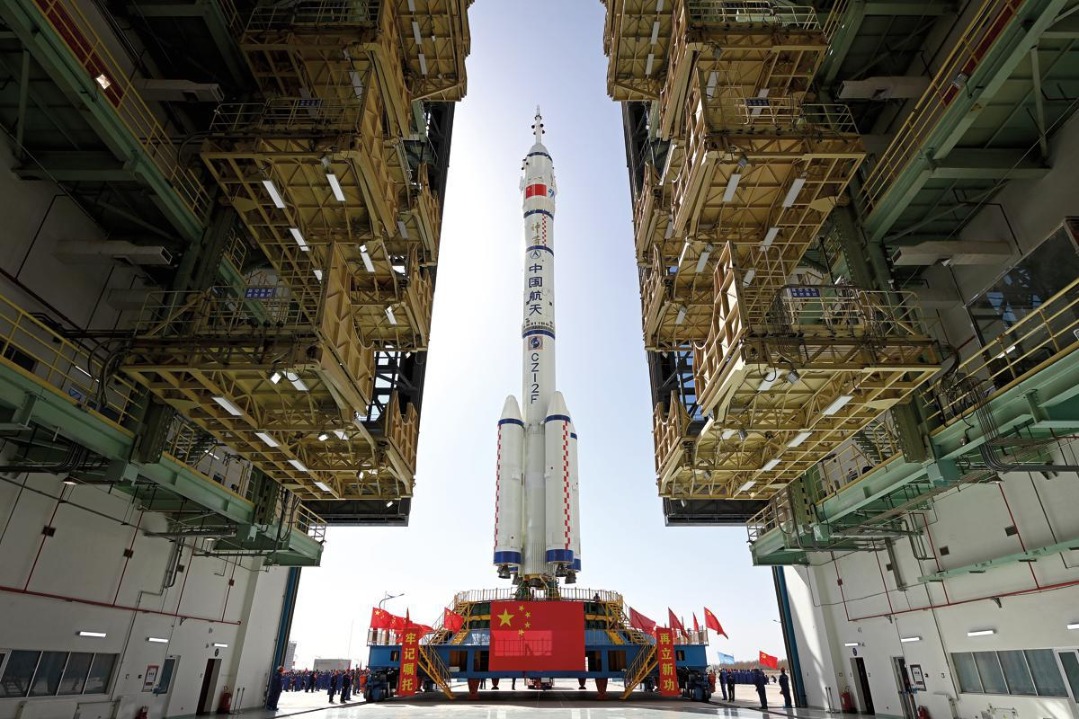Nanjing Massacre victims remembered


China held its annual national memorial ceremony on Friday in Nanjing in Jiangsu province to commemorate the 300,000 victims of the Nanjing Massacre in 1937.
The Memorial Hall of the Victims in Nanjing Massacre by Japanese Invaders saw the raising of the national flag at 8 am, followed by its ceremonial lowering to half-mast. The commemoration began at 10 am with about 8,000 representatives from all walks of life standing solemnly at the memorial's assembly square. Sirens began to wail across Nanjing at 10:01 am as vehicles stopped and pedestrians paused to observe a moment of silence mourning the victims. Eight wreaths were laid to pay tribute to the victims.
"We hold this state memorial to proclaim our unwavering stance — to remember history, cherish peace, and create a future of national rejuvenation by carrying forward the noble spirit of our revolutionary martyrs," said Li Shulei, a member of the Political Bureau of the Communist Party of China Central Committee and head of the Publicity Department of the CPC Central Committee.
He urged the Chinese people to unite, persevere, maintain self-confidence, promote reform and innovation, steadfastly safeguard peace and uphold justice.
"Remembering history allows us to forge ahead better," Li said.
Among the ceremony's attendees was 90-year-old Nanjing Massacre survivor Liu Minsheng. According to the Memorial Hall, only 32 registered survivors remain alive as of Dec 13, dwindling from 1,756 survivors recorded in Nanjing's first 1987 census.
A total of 87 young people recited a declaration of peace, and six citizen representatives rang the Bell of Peace, its tolls resonating as 3,000 peace doves soared into the sky.
"As the younger generation, it is an immense honor to voice this call for peace to the world. Today's event has helped me understand this history more profoundly, inspiring me to study diligently for China's revitalization while remembering the past to envision a better future," said Gao Yushan, a student from Zhonghua Middle School, who led the recitation.
Jiang Bingchun, the great-grandson of Nanjing Massacre survivor Chen Guixiang and an inheritor of the historical memories of the Nanjing Massacre, expressed the aspiration that the annual ceremony could help more people, regardless of age or nationality, cherish peace and a shared human destiny. "Now 87 years since the Nanjing Massacre, the commemoration reminds us of the immense sacrifice behind today's hard-won peace that we must never forget."
Olympic swimmer Zhang Yufei, one of the strikers of the Bell of Peace this year, felt a profound sense of responsibility.
"Ringing the Bell of Peace is not only a review of history, but also an expectation for the future. I deeply feel that only by remembering history can we cherish the present peace and the happy life. As an athlete, I will uphold the Olympic spirit of peace going forward and inspire more youth to contribute more to the aspiration of a powerful nation," she said.
"The resounding peal reminds all generations to etch this once unimaginable period into memories," said another bell striker Zhang Hongcheng, former president of Yangzhou University's Research Institute of Rice Industrial Engineering Technology, adding that we must unite to achieve Chinese-style modernization, and educators should nurture more top talent to create world-leading innovations.
A candlelight assembly was also held to mourn the deceased and pray for peace.
In 2014, China's top legislature designated Dec 13 as the national memorial day for Nanjing Massacre victims to promote peace and oppose the denial of history.
Guo Jun contributed to this story.






































